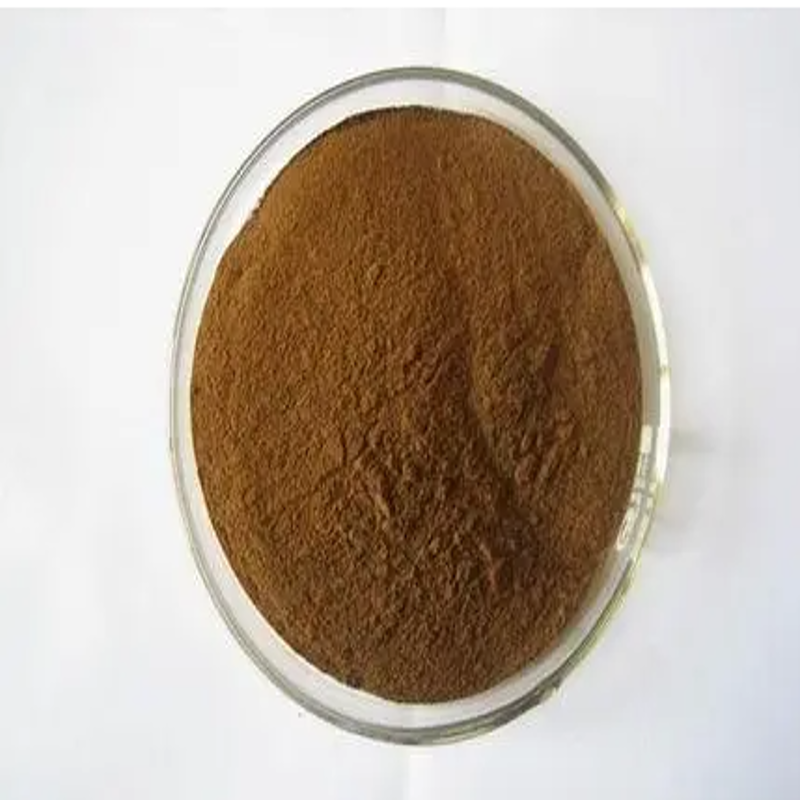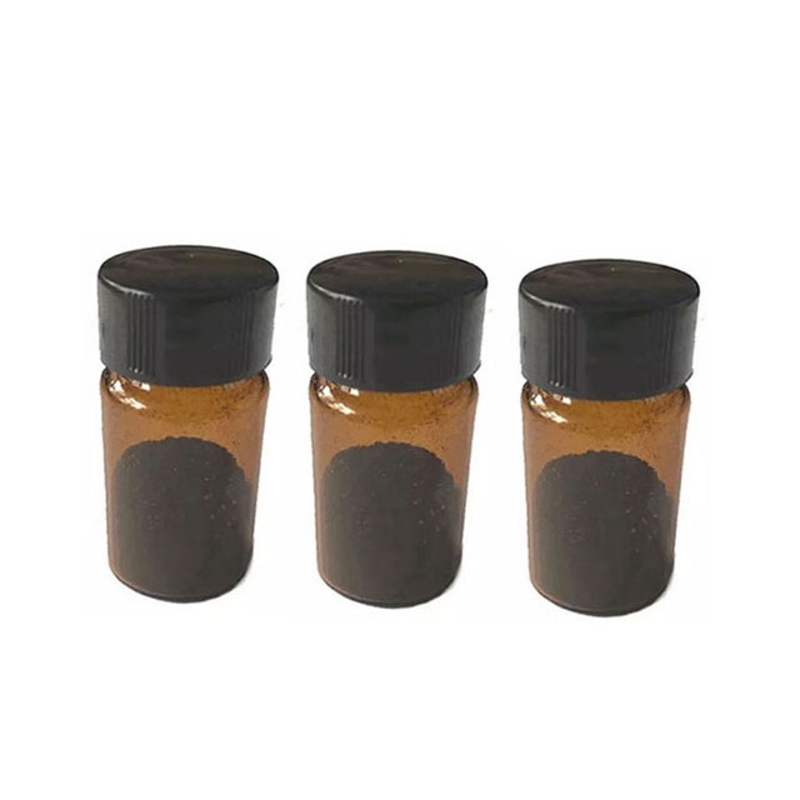-
Categories
-
Pharmaceutical Intermediates
-
Active Pharmaceutical Ingredients
-
Food Additives
- Industrial Coatings
- Agrochemicals
- Dyes and Pigments
- Surfactant
- Flavors and Fragrances
- Chemical Reagents
- Catalyst and Auxiliary
- Natural Products
- Inorganic Chemistry
-
Organic Chemistry
-
Biochemical Engineering
- Analytical Chemistry
- Cosmetic Ingredient
-
Pharmaceutical Intermediates
Promotion
ECHEMI Mall
Wholesale
Weekly Price
Exhibition
News
-
Trade Service
Original: Ruan Guangfeng
Rice is almost an indispensable member of the "general" in our Chinese family.
Steamed rice, fried rice, rice bowl.
.
.
are all people's favorites
.
However, a recent study surveyed the rice intake of 132,373 participants in 21 countries and found that rice consumption was significantly associated with an increased risk of diabetes.
The daily intake of rice exceeded 450g (equivalent to more than 3 bowls of rice).
The risk of diabetes has increased by 20% in the people who have eaten food
.
We have eaten white rice for thousands of years.
Why is it suddenly related to diabetes? Actually because they ate the wrong "rice"
Steamed rice, fried rice, rice bowl.
.
.
are all people's favorites
.
However, a recent study surveyed the rice intake of 132,373 participants in 21 countries and found that rice consumption was significantly associated with an increased risk of diabetes.
The daily intake of rice exceeded 450g (equivalent to more than 3 bowls of rice).
The risk of diabetes has increased by 20% in the people who have eaten food
.
We have eaten white rice for thousands of years.
Why is it suddenly related to diabetes? Actually because they ate the wrong "rice"
——Too much white rice and too little whole grains
1.
What's wrong with white rice? The white rice we eat now has to be refined and processed
.
In the refining process, in addition to removing the inedible chaff, in order to pursue a delicate taste, the chaff is further crushed, and the germ will be peeled off, leaving almost only the endosperm, which becomes "refined" white rice, which will be discarded "Benefits"
.
What's wrong with white rice? The white rice we eat now has to be refined and processed
.
In the refining process, in addition to removing the inedible chaff, in order to pursue a delicate taste, the chaff is further crushed, and the germ will be peeled off, leaving almost only the endosperm, which becomes "refined" white rice, which will be discarded "Benefits"
.
Grain consists of three main parts: endosperm, germ and bark
.
The outermost layer of unprocessed grains is wrapped with a hard chaff to protect the grains
.
Grain bark is rich in dietary fiber, and the germ is rich in protein and B vitamins.
The endosperm is mainly starch, protein and a small amount of fat
.
Refined processing will cause the grains to lose a lot of nutrients, and the refined processed grains have almost only starch and no dietary fiber, and the digestion speed is very fast.
After eating, the digestion speed is also very fast, which is very unfavorable to the control of blood sugar and weight
.
Compared with refined grains, whole grains contain more dietary fiber, vitamins, minerals and phytochemicals.
Eating more whole grains can reduce the risk of chronic diseases such as colorectal cancer, type 2 diabetes, and cardiovascular disease
.
In 2019, The Lancet published an analysis study on the mortality and disease burden caused by dietary structure in 195 countries and regions.
This statistic tracked 15 dietary factors in 195 countries and regions from 1990 to 2017.
Intake trends, analyzed the mortality and disease incidence rates of countries around the world due to dietary structure
.
.
The outermost layer of unprocessed grains is wrapped with a hard chaff to protect the grains
.
Grain bark is rich in dietary fiber, and the germ is rich in protein and B vitamins.
The endosperm is mainly starch, protein and a small amount of fat
.
Refined processing will cause the grains to lose a lot of nutrients, and the refined processed grains have almost only starch and no dietary fiber, and the digestion speed is very fast.
After eating, the digestion speed is also very fast, which is very unfavorable to the control of blood sugar and weight
.
Compared with refined grains, whole grains contain more dietary fiber, vitamins, minerals and phytochemicals.
Eating more whole grains can reduce the risk of chronic diseases such as colorectal cancer, type 2 diabetes, and cardiovascular disease
.
In 2019, The Lancet published an analysis study on the mortality and disease burden caused by dietary structure in 195 countries and regions.
This statistic tracked 15 dietary factors in 195 countries and regions from 1990 to 2017.
Intake trends, analyzed the mortality and disease incidence rates of countries around the world due to dietary structure
.
In this study, China’s mortality rate due to dietary problems is the second lowest in the world, which is higher than that of the United States, where we often believe that the diet is unhealthy.
In 2017, China’s mortality rate from cardiovascular diseases and cancer caused by dietary problems The mortality rate is the first among the top 20 most populous countries in the world.
.
.
One of the important reasons is that you eat too little whole grains
.
Recently, in order to promote a healthy life>
.
In 2017, China’s mortality rate from cardiovascular diseases and cancer caused by dietary problems The mortality rate is the first among the top 20 most populous countries in the world.
.
.
One of the important reasons is that you eat too little whole grains
.
Recently, in order to promote a healthy life>
.
2.
What are the benefits of whole grains?
What are the benefits of whole grains?
Whole grain means that although it has been processed by milling, crushing, and tableting, it still retains the endosperm, germ, bran and other parts, which also better retains the natural dietary fiber, B vitamins, minerals and so on.
Nutritional ingredients
.
Nutritional ingredients
.
For example, whole grains have dietary fiber.
Dietary fiber has many benefits for maintaining a healthy weight and maintaining good health.
It is especially beneficial for preventing constipation and colorectal cancer
.
Dietary fiber has many benefits for maintaining a healthy weight and maintaining good health.
It is especially beneficial for preventing constipation and colorectal cancer
.
The prevalence rate of adult constipation in China is 3.
19%-11.
6%, and that of middle-aged and elderly people over 60 years old is as high as 22%
.
Colorectal cancer is also one of the cancers with a high incidence in China
.
These problems are closely related to insufficient dietary fiber intake
.
According to a report issued by the International Organization for Research on Cancer, eating about three servings (90 grams) of whole grains a day will reduce the risk of colorectal cancer by 17%
.
19%-11.
6%, and that of middle-aged and elderly people over 60 years old is as high as 22%
.
Colorectal cancer is also one of the cancers with a high incidence in China
.
These problems are closely related to insufficient dietary fiber intake
.
According to a report issued by the International Organization for Research on Cancer, eating about three servings (90 grams) of whole grains a day will reduce the risk of colorectal cancer by 17%
.
Whole grains contain trace elements such as B vitamins and a variety of minerals, which also have a better preventive effect on chronic diseases such as high blood pressure and other cardiovascular and cerebrovascular diseases and diabetes
.
For example, whole-grain foods have a low glycemic index, which is very suitable for diabetics; whole-grain foods also have functions such as regulating blood lipids and controlling weight
.
.
For example, whole-grain foods have a low glycemic index, which is very suitable for diabetics; whole-grain foods also have functions such as regulating blood lipids and controlling weight
.
3.
To eat whole grains, is it necessary to eat "whole wheat bread"? When it comes to eating "whole grains", many people first think of eating "whole wheat bread"
.
Now there are also a variety of whole wheat breads in supermarkets
.
To eat whole grains, is it necessary to eat "whole wheat bread"? When it comes to eating "whole grains", many people first think of eating "whole wheat bread"
.
Now there are also a variety of whole wheat breads in supermarkets
.
In fact, this kind of misunderstanding is completely misunderstood, and it may “fall out”
.
Because there are currently no relevant labeling standards for whole grains or whole-grain foods in China, this has left some businesses with an opportunity to "take advantage of the loopholes": as long as whole wheat flour is added when making bread, even if the amount of addition is small, it can be called Whole wheat bread! For most people, it is really easy to be confused and buy "fake" whole wheat bread
.
In fact, there are many whole-grain foods that we can buy in our lives.
It is not only when we eat whole-wheat bread that we can eat whole-grains
.
There are many whole grains in life, including brown rice (whole grain rice), oats, millet, buckwheat, corn, barley, etc.
You can make it yourself at home
.
.
Because there are currently no relevant labeling standards for whole grains or whole-grain foods in China, this has left some businesses with an opportunity to "take advantage of the loopholes": as long as whole wheat flour is added when making bread, even if the amount of addition is small, it can be called Whole wheat bread! For most people, it is really easy to be confused and buy "fake" whole wheat bread
.
In fact, there are many whole-grain foods that we can buy in our lives.
It is not only when we eat whole-wheat bread that we can eat whole-grains
.
There are many whole grains in life, including brown rice (whole grain rice), oats, millet, buckwheat, corn, barley, etc.
You can make it yourself at home
.
Of course, processed foods such as whole-wheat bread, whole-wheat crackers, whole-wheat noodles, oatmeal, tortillas, barley crackers, etc.
are also whole grains, but there are more pits in it, so everyone should pay attention to the ingredient list
.
Remember: if the first one is not "whole wheat flour", it can basically be regarded as "fake whole wheat"
.
are also whole grains, but there are more pits in it, so everyone should pay attention to the ingredient list
.
Remember: if the first one is not "whole wheat flour", it can basically be regarded as "fake whole wheat"
.
4.
How to eat whole grains healthy?
How to eat whole grains healthy?
(1) Eat enough
.
The first article of the "Dietary Guidelines for Chinese Residents (2016)" recommends "Diverse food, mainly cereals", and clearly recommends that the number of food varieties of cereals, potatoes, and miscellaneous beans is more than 3 types per day and more than 5 types per week.
Approximately 50-150 grams of whole grains should be consumed daily
.
The current data shows that we eat less than one-third of whole grains every day, so we usually remind ourselves to eat more whole grains and try to eat enough
.
.
The first article of the "Dietary Guidelines for Chinese Residents (2016)" recommends "Diverse food, mainly cereals", and clearly recommends that the number of food varieties of cereals, potatoes, and miscellaneous beans is more than 3 types per day and more than 5 types per week.
Approximately 50-150 grams of whole grains should be consumed daily
.
The current data shows that we eat less than one-third of whole grains every day, so we usually remind ourselves to eat more whole grains and try to eat enough
.
(2) Mix and match with other grains
.
Since the staple food made of refined rice and noodles has a soft taste, and whole grains and whole grains often make people feel bad, we might as well mix whole grains and fine grains together
.
For example, add millet, oats, corn, brown rice, etc.
to rice and porridge, and mix brown rice, oats, buckwheat, red rice, black rice, etc.
with white rice in a certain proportion to make "two-in-one rice", "multi-grain rice" or "five grains" "Rice" is also a better choice
.
If you feel that dry rice has a bad taste, you can consider making soy milk with five grains and eight-treasure porridge
.
.
Since the staple food made of refined rice and noodles has a soft taste, and whole grains and whole grains often make people feel bad, we might as well mix whole grains and fine grains together
.
For example, add millet, oats, corn, brown rice, etc.
to rice and porridge, and mix brown rice, oats, buckwheat, red rice, black rice, etc.
with white rice in a certain proportion to make "two-in-one rice", "multi-grain rice" or "five grains" "Rice" is also a better choice
.
If you feel that dry rice has a bad taste, you can consider making soy milk with five grains and eight-treasure porridge
.







